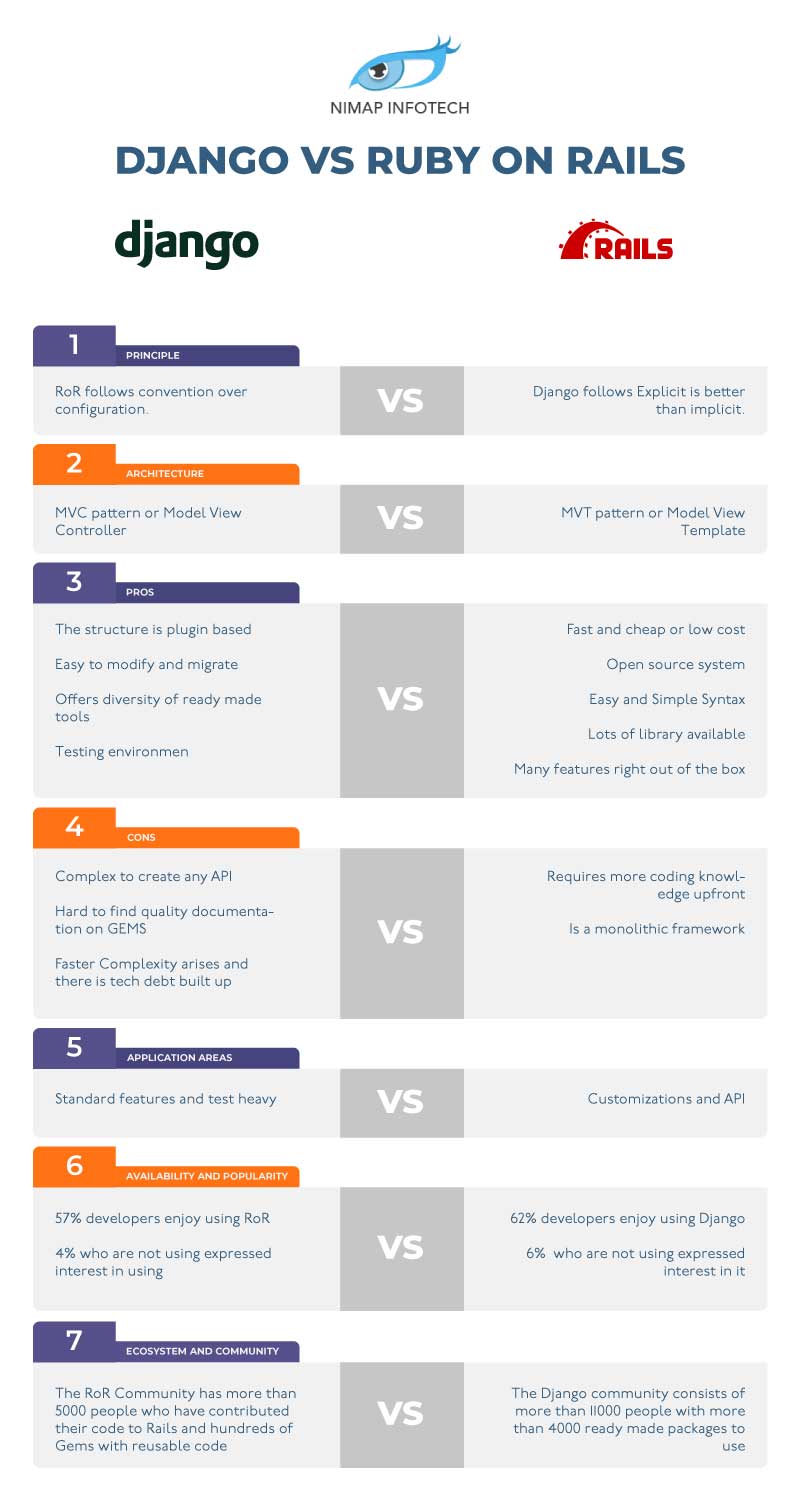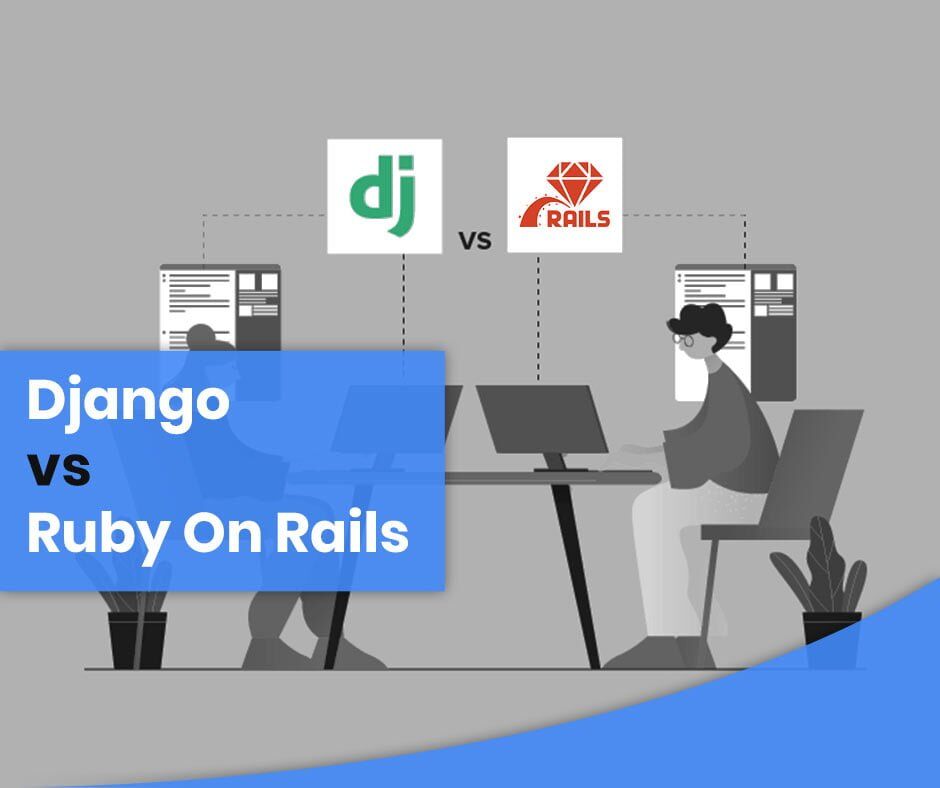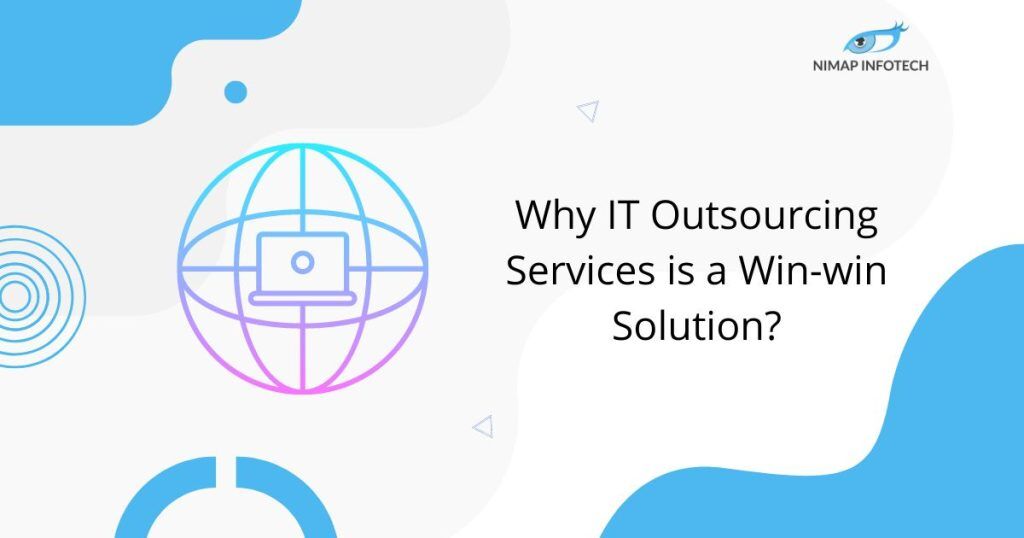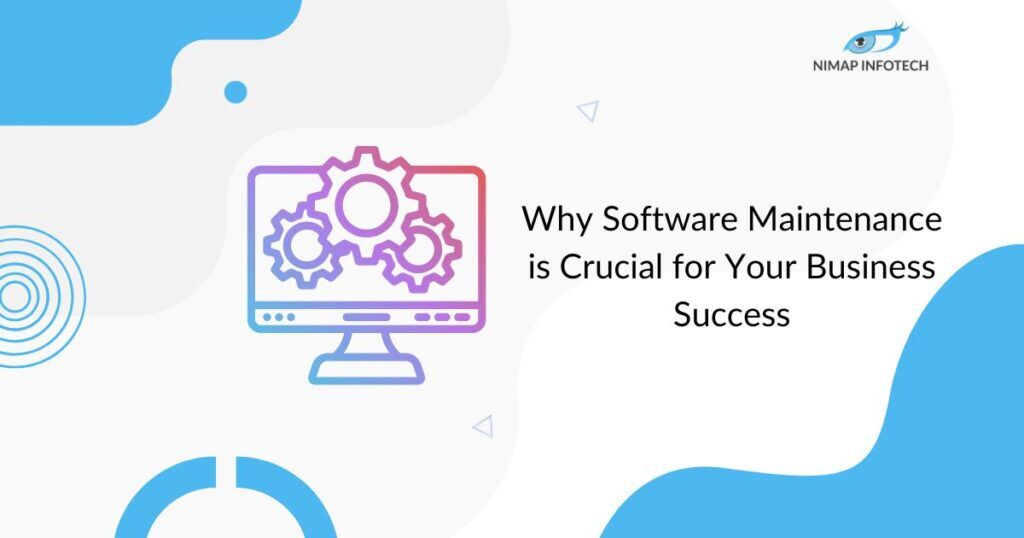Django vs Ruby On Rails
Firstly, Ruby on Rails and Django have coexisted for a long time to come. Both are perfect frameworks for web development. How do you choose one over the other?
Generally, they have some things that exist in common. From programming language similarities(Ruby in the case of Rails, and Python in the case of Django), both provide object-oriented features and both are dynamically typed. They have good performance specific for each project. These technologies are best used for web app development depending on your customer requirements.
If you are going to decide between the two, both are exceptional choices. here are some things for you to consider.
What do they have in common?- Ruby on Rails vs Django
Particularly, it can be said that Ruby on Rails and Django are similar to twins. They differ only in the language which is under the hood. They have similar applied philosophies. Each is born in a different ecosystem.
Languages
As mentioned earlier, Ruby on Rails and Django are object-oriented languages. The languages are dynamically typed.
Particularly, the major difference between these languages is that Python and Ruby both are open sources. Their respective communities are very robust in nature and are very productive.
You won’t be struggling to find answers or any information that you need in the documentation. When you commit to using these frameworks. Both of these languages are very easy to learn and use.
Performance
Ruby and Python have nearly the same level of performance. Particularly, these differences are not noticeable when you use a CRUD app.
The differences are just as insignificant when you use a large application. If you have a priority for high performance, then neither would be the right choice.
Lets put it this way, both are equally good at CPU expensive operations such as image manipulation or editing. They can also serve thousands of users but it takes a lot more work to configure the Ruby or Python to deal with such volume.
If you are dealing with massive volume and need high performance, then you are better off with NodeJS or Elixir.
If you need high performance as well as scalability you are better of using NodeJS or any other language.
Architecture
The architecture is the MVC model for both (Model View Controller) and is well structured. Your app will be arranged properly and have distinctions. There will be basic divisions between layers like defined routes, models, controllers bounded views within the framework.
Things are placed a bit differently in Rails and Django, but it’s just the layout. There is nothing to worry about.
The MVC architecture helps you to design awesome applications that allows for better performance and responsive web applications
Recommended Read: Django vs Laravel: Which Web Application Framework to Choose?
What makes them different?- Ruby on Rails vs Django
Languages
Generally, in terms of syntax, Python was designed to force a good style(indents are important).
Ruby was designed to be as readable as possible. Just like you would read the English language.
This gives the programmer much headspace as possible.
Philosophies
The main motto of Django is to be the framework for perfectionists with deadlines. Django relies heavily on the DRY concept. That avoids repeating yourself.
With RoR its is convention over configuration. You have to create less code in Rails to achieve the same results. Many functions can happen without strict definitions all thanks to conventions.
Ecosystem
Whatever the integration library that you need, you will find it for both Django and RoR.
However, Python is more popular and is widely used for many purposes. Not just web development but also for science and machine learning computations.
Ruby was designed to be a general-purpose solution, but most live applications in Ruby are web apps such as GitHub, Shopify, and Airbnb.
You should use Django if
- Your development team prefers to use Python and is more suited to the Django philosophy.
- if you require a configuration-based approach and this provides you more control.
- if you require do not need out-of-the-box functionality.
You should use RoR if you:
- have an experienced team of developers- RoR requires a bit of knowledge if you want to develop applications fast
- need to design and develop a web app quickly- this is possible to dozens of gems (libraries) that RoR offers.
- should be able to iterate fast- RoR minimizes code writing time and lets your team deploy faster.
Difference Between Django and Ruby on Rails

Also Read: Ruby vs Python
Conclusion- Django vs rails
Finally, now you know all about RoR and Django (Django vs Ruby on Rails 2020). It all comes down to personal preferences as well as what your development needs are. It also boils down to what features do you want your application to have. What your approach will be. If you liked this blog then do check out our other blogs as well.
Author
-

Sagar Nagda is the Founder and Owner of Nimap Infotech, a leading IT outsourcing and project management company specializing in web and mobile app development. With an MBA from Bocconi University, Italy, and a Digital Marketing specialization from UCLA, Sagar blends business acumen with digital expertise. He has organically scaled Nimap Infotech, serving 500+ clients with over 1200 projects delivered.
View all posts









































